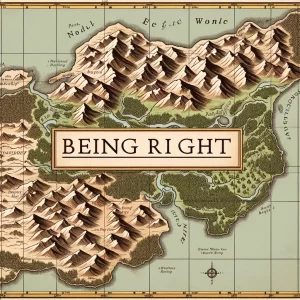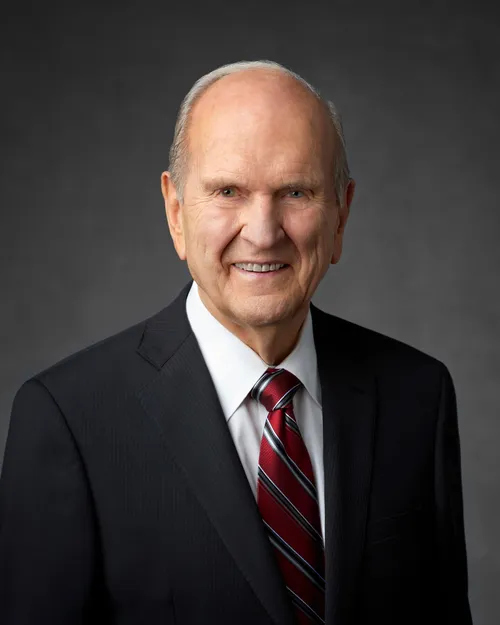
The first time I climbed the plateaus around Kanab I was stopped just below the top. There was a sheer sandstone cliff preventing me from climbing the last 40 feet. Slowly I worked my way around the base of this final obstacle, searching for a break in the wall, or a sandy slope I could scramble up.
It wasn’t long before I spotted a potential way up. A gap of some sort situated on top of a chest-high shelf of stone. I struggled up onto the shelf and took a closer look. The gap was tight, but it ran all the way from the top of the cliff to the bottom. It cut into the cliff at an angle, seeming to end abruptly after about 10 feet. The gap was just barely wider than my body–so narrow I reckoned I could easily wedge my body in there and climb up like a spider. I went in to investigate.
At the back of the gap I saw that it didn’t actually end. It made a 90 degree turn to the right and kept going into the cliff face. Lose sand had spilled down from above, forming a gentle ramp to the top of the plateau. I had found it! With excitement I turned my body sideways and squeezed through the turn, emerging with just a few scuffs to the beautiful biome above.
My experience going through that narrow space pops into my head whenever I hear this quote from Harold B Lee:
“We have some tight places to go before the Lord is through with this church and the world.”
I can’t help but think of scratchy sandstone walls, rubbing against your skin as you squeeze through the last turn of a long journey. To fit through that crack, you have to take off your backpack. I don’t even think I could fit through today as an adult – I’ve gotten too fat.
I think that he means these tight places will require sacrifice, dropping non-essentials, maybe losing a few pounds. 🙂 I imagine a voice saying “You can get to the top if you want to, but you have to want it more than anything else.”
To me, what makes a “tight place” is a question of being forced to choose our priorities.

Here’s more context for that quote:
“We have some tight places to go before the Lord is through with this church and the world. … There will be some things that take patience and faith. You may not like what comes from the authority of the Church. … But if you listen to these things, as if from the mouth of the Lord himself, with patience and faith, the promise is that ‘the gates of hell shall not prevail against you; yea, and the Lord God will disperse the powers of darkness from before you, and cause the heavens to shake for your good, and his name’s glory.’ (D&C 21:6.)” (Harold B Lee, In Conference Report, Oct. 1970, p. 152.)
It seems like many of the challenges of this life and of enduring to the end are questions of priorities: What is important to you and what would you be willing to sacrifice for it?
Here’s an example of warring priorities told by a doctor on reddit:
My breaking point came three weeks ago. I dealt with a particularly horrible case. This was a husband and father, 38 years old. A wife, two daughters, one son. All of age to get vaccinated, none vaccinated. If you could have seen his face, and the ravages left by both COVID and the time he spent prone on his stomach. An enormous clot kept reforming in his leg, and we had been forced to amputate his foot in hopes of keeping him alive. When he was awake, the look of terror in his eyes, the crying, the pain. It was nothing new. But the begging, over and over, “Don’t let me die.” And “Give me the vaccine.” All I could tell him is “We won’t let you” – although I never said we might not have any choice in the matter. And I told him, repeatedly, it was too late for the vaccine.
He begged me to bring in his family. A nurse called them, because they had never come to the hospital. They refused to wear masks, and so would not be admitted. The nurse told the wife that her husband was likely dying, and was begging to see them. All she cared about was masks. She would only come if she and her daughters didn’t have to wear any.
For this patient’s wife, her beliefs about masks became her highest priority and didn’t allow her to set them aside even temporarily for the sake of her loved one’s needs.
Choosing priorities also comes up again and again in a church setting. One commenter on reddit complained “Are they seriously going to keep me out of the temple for a cup of tea?” She couldn’t see it as “am I really going to give up something as important as the temple for a cup of tea?”
Be Right, or Be Happy?
In a marriage setting, counselors to families often ask the question, “Would you rather be right, or would you rather be happy?”
My own “Aha” moment with this question came when I thought back to a road trip to Las Vegas with a college girlfriend. As we approached the city we talked about trying to change lanes fast enough to not roll over the reflective bumps on the dotted lines. She gave it a few tries, and finally got her lane change without any “thump” sounds. She cheered in triumph. But I had heard a little sound from the rear tires that told me she hadn’t made it, and I told her so.
Stupidly this devolved into an argument and all the fun from our game was gone.
After our relationship eventually ended I asked myself why we were always fighting. I thought back to that one little incident where genuine happiness had turned into a pointless debate and realized the problem was me. I had to be right.
 Being Right doesn’t actually change what’s true. It only attempts to change my position in the perception of others–to place myself on one side of an imagined line. It doesn’t actually change the world except through my interactions with others as I try to get everyone to believe in a magical kingdom called “the right” where I insist I live.
Being Right doesn’t actually change what’s true. It only attempts to change my position in the perception of others–to place myself on one side of an imagined line. It doesn’t actually change the world except through my interactions with others as I try to get everyone to believe in a magical kingdom called “the right” where I insist I live.
Being Right is drawing a new line on a map and saying “my feet are firmly planted in Correct Land!” Perhaps it’s not said out loud, but the obvious counterpoint is that anyone you haven’t included in your boundaries is in the wrong. How can we hope to offer forgiveness to somebody when we are busy drawing arrows towards them labeled “sinner?” I can’t help but think that true forgiveness requires us to erase our little lines and recognize our true shared condition, or, stated another way, choosing Being Right means making forgiving others almost impossible.
At its most extreme, the need to Be Right seeks to shape reality into a universe where we are the center of truth; to alter what really is into what we want it to be. Taken too far we supplant God’s will and creation with our own version of reality–a world more limited in scope where nothing matters but our own story. Ironically, Being Right can force us to abandon the larger truths of things as they really are in exchange for small, unimportant pieces of the whole. We hoard a penny of eternity because others have none, while a mountain of gold is available to all of us.
Being Right and Being Righteous
 That need to Be Right invades our religious systems. “Righteousness,” after all, has its source in the idea that there is a right way of living and a wrong way. But too often we treat that line between right and wrong as justification for ourselves and condemnation of all others instead of a goal for which we must strive daily. Taken too far, as the Pharisees did, its far too easy to insist on dogmatic “right ways” that only add stress and pain to imperfect believers trying to operate perfectly in a church that ironically proclaims sinners are welcome.
That need to Be Right invades our religious systems. “Righteousness,” after all, has its source in the idea that there is a right way of living and a wrong way. But too often we treat that line between right and wrong as justification for ourselves and condemnation of all others instead of a goal for which we must strive daily. Taken too far, as the Pharisees did, its far too easy to insist on dogmatic “right ways” that only add stress and pain to imperfect believers trying to operate perfectly in a church that ironically proclaims sinners are welcome.
I submit that Righteousness doesn’t mean Being Right, but rather doing the right thing.
Debates and judgmental asides about what hand a person uses to take the sacrament, who feeds their children snacks on Fast Sunday, or what color a person’s shirt is are more likely to suck the fellowship and kind feelings from the church than to facilitate any meaningful positive change. As the Apostle Paul, President Oaks and Elder Maxwell have each observed in their own way: Some things are true, but not important.
Yet prioritizing Being Right is often reinforced in our meetings and discussions. (Especially when we indulge our egos in the satisfying concept of a Second Coming that involves everyone else being told once and for all that they had it all wrong, and that we were the meek ones all along! Surely when the proud are burned, it will not include us!) President Benson warned us against that self-satisfying kind of perspective when he told us to Beware of Pride.
Prioritizing Being Right is Pride Manifest.
President Benson did not limit his definition of the affliction of pride to those who willingly push against God or who reject the doctrines of the Restored Gospel. Instead, he defines pride as any kind of enmity.
The central feature of pride is enmity—enmity toward God and enmity toward our fellowmen. Enmity means “hatred toward, hostility to, or a state of opposition.” It is the power by which Satan wishes to reign over us…
We are tempted daily to elevate ourselves above others and diminish them. (See Hel. 6:17; D&C 58:41.)
The proud make every man their adversary by pitting their intellects, opinions, works, wealth, talents, or any other worldly measuring device against others…
How do I show Christlike love when I feel that urge to “um, actually” the uninformed member next to me in Sunday School, or to point out the wrongness of the beliefs of others? Or when I simply think of the politics and religions of the world and fantasize about them all saying “oh wow, you were so right?”
Letting Go of Being Right
Certainly, the first step to fixing a problem is recognizing the problem! Perhaps I’ll make my first step by admitting that instead of focusing on how the inactive member should let go of offenses, I ought to do everything I can to understand and prevent those offenses from happening ever again. Maybe my first step is in the difficult realization that “would you rather be right or would you rather be happy” isn’t something I can get around with justifications or mental gymnastics – that there will be situations where I have to choose between revealing myself as right, and supporting the happiness of others.
Or, perhaps, the first step will be a careful re-examination of those unquestioned priorities we all carry around. To ask myself, “does this really matter?” such as when thinking of correcting a teacher in Sunday School who says something wrong about the story of Noah’s Ark.
Maybe I can point a family member to scripture study and prayer rather than supplying my own non-prophetic answers to their doctrinal questions.
Here are some tools that may help us give up Being Right.
Think Celestial
 By prioritizing the Celestial perspective, we gain the ability to distance ourselves from pride and the need to be right. I might see some uninformed error being shared by my family members, but instead of correcting them I might ask myself “does this mistake change their path? Is the error so important that it will push our family away from the Celestial Kingdom?” The navigator of a ship might believe the stars are the spirits of dead ancestors, but that doesn’t prevent him from successfully charting a course and returning home. We need not insist that he teach everyone the true nature of stars, or suggest he can’t navigate correctly because he is wrong on this subject.
By prioritizing the Celestial perspective, we gain the ability to distance ourselves from pride and the need to be right. I might see some uninformed error being shared by my family members, but instead of correcting them I might ask myself “does this mistake change their path? Is the error so important that it will push our family away from the Celestial Kingdom?” The navigator of a ship might believe the stars are the spirits of dead ancestors, but that doesn’t prevent him from successfully charting a course and returning home. We need not insist that he teach everyone the true nature of stars, or suggest he can’t navigate correctly because he is wrong on this subject.
President Nelson’s invitation to “Think Celestial” is an opportunity to more closely align our priorities with those of God. Done correctly, a Celestial mindset can help us shake off the myopic worldviews obsessed with self-righteousness in favor of those selfless priorities which will actually change the world. By prioritizing God’s plan for us, we stop imagining a world that cheers our correctness, and instead create a world where Jesus Christ is welcomed.
Give up Perfection
Some feel that burning desire for a righteous world so acutely that they make no room for imperfection. Their hunger for righteousness is turned into an all-consuming fire. But being wrong was always part of the plan.
You need not feel less-than, or inferior in the Lord’s Kingdom. You are a Child of God. A royal inheritor of all God has. Part of what God has given you is the chance to come to this world and *be wrong.* To make mistakes. To stumble, fall, and rise again. Because of the Atonement of Jesus Christ you are able to make your own unique mistakes and not be condemned by them.
It is our mistakes, flaws, sins, and imperfections that allow the light of Christ into our lives. As Leonard Cohen once wrote, “There’s a crack in everything. That’s how the light gets in.” This does not mean we should seek out sin. But it does mean that we should never consider ourselves past saving, or broken beyond repair. We can have remorse for what we do wrong, while rejoicing in the miracle of Christ’s infinite grace. We can accept those who are wrong, and trust that, together with Christ, we will be All Right.
Forgive Imperfection
As disciples of Jesus Christ, we all must embrace repentance – to try, try again! But we can and must, with the pure love of Christ, make room in our congregations for those who have fallen, even fallen far, and are trying once more to return to the light.
A young man confessed to his Bishop a grievous sin. In their multiple discussions and as part of the repentance process, the young man also confessed to the family he had wronged. They had trusted him and he had betrayed that trust horribly.
The father’s rage was almost uncontrollable. He went to the police and demanded an immediate arrest. He went to the stake president and demanded an immediate excommunication. He went to the employer of the young man and insisted he be fired. One by one, each of these institutions looked at the situation, judged as carefully as they could, and chose not to inflict punishment.
There were consequences, of course. And the repentance process was long and difficult. Certain options were taken away from the young man, and some trust would never be given again. But none of that was enough to satisfy the father of the family who had been hurt.
He began taking more extreme actions. Parking outside the young man’s seminary building and shouting loudly for all to hear just what this person had done till he was finally escorted away. He even purchased a billboard to try and publicly shame this young man and his family.
Finally, when it became clear that the young man was not being excommunicated, the father tore up his temple recommend and resigned his own membership, loudly proclaiming “I can’t belong to an organization that would tolerate a person like this.”
I don’t know the right way to forgive deep injury, but I am certain that unfair pain and the need for forgiveness are as much a part of the plan as is repentance. And if abandoning the need to be right is necessary for true repentance, then it is equally necessary for forgiveness.
Rogers-like Listening
Perhaps one of the best ways to let go of Being Right was taught to me by the example of my mother. One day, as I visited with her, I told her the latest gossip. She was appropriately astonished and chatted with me for some time. Not long after, another adult came by to talk. He also brought up the latest gossip – the exact same facts and news that I had just told her about. My mothers reaction was surprising. She didn’t say “Oh, yes, I heard about that!” or “But did you know that…” Instead, she gave him her full attention, asking questions I knew she knew the answer to, and enjoying the discussion anew.
It broke my brain.
I started paying attention to how often I interrupt people to tell them “I already know” or to stop children from telling me the same joke for the 100th time. How I took away from the opportunities of others by clarifying for them that, yes, I’m already on the right side of this, behold my glory.
I think I’ve become a much better listener since learning that lesson, and I try to emulate my mother and engage in what Psychologists call “Rogers-like Listening.” Named after Mister Rogers, about whom people would remark “it felt like I was the most important thing to him.”
Imagine how the world would change if we let go of being right and instead prioritized bringing joy to those around us. To invite them to tell us more about where they stand on the map, the triumphs that brought them here, and the people who loved them into the person they are.
President Benson talked about achieving this ideal when he taught:
Christ wants to lift us to where He is. Do we desire to do the same for others?
We can choose to humble ourselves by conquering enmity toward our brothers and sisters, esteeming them as ourselves, and lifting them as high or higher than we are.
Being wrong was always part of the plan. Let go of perfection. Avoid spending time in activities or places that increase a sense of antagonism or superiority towards others. Listen to children. Be okay with being wrong.
